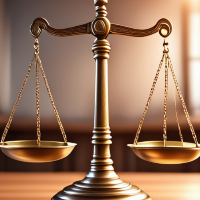 Mont Clare Felony Lawyers, Pennsylvania
Mont Clare Felony Lawyers, Pennsylvania
Sponsored Law Firm
-
 x
x

Click For More Info:
-
Ciccarelli Law Offices
Numerous Office Locations Available» view mapCriminal Defense Success Is Our Mission
You gain the resources of a Team with 100 years of combined experience fighting for their clients throughout Pennsylvania.
888-240-0896
Sponsored Lawyers
1-6 of 6 matches
Divorce & Family Law, Criminal, DUI-DWI, Felony, Child Custody
Criminal, Car Accident, Wrongful Death, DUI-DWI, Felony
Attorney Christopher Bokas handles all felonies and misdemeanors, including white collar crimes, juvenile crimes, drug offenses, parol and probation violations, drunk driving, and traffic violations. Mr. Bokas has ample experience trying jury and bench trials, and handles his cases with great care and professionalism. Each of his clients is given individual attention and all the time and effort necessary to bring about a favorable result. This is essential, because there is no substitute for thorough preparation. Mr. Bokas examines all facets of his cases, looks at all the evidence, and researches the applicable law before deciding on a proper defense and strategy. All decisions are shared with the client, as team efforts are highly valued. I practice in the federal courts, and all the state courts in the Philadelphia and suburban area. including common pleas court, municipal courts and magisterial district courts. Mr. Bokas graduated from Temple University in 1970 with a degree in political science, with honors, and attended the University of Baltimore from which he graduated in 1974 with a law degree. He immediately undertook the practice of law with enthusiasm and a sense of mission to right wrings and bring about justice for his clients. Mr. Bokas is a member of numorous legal and civic organizations, including The Pennsylvania and Deleware County Bar Associations. He is also active in The Pan Epirotic Society, for which he has served as legal advisor, as well as The Pan Macedonian Society. He has been serving the community for 39 years as a practitioner and a trial lawyer, with an emphasis on criminal law. Mr. Bokas practices criminal law in all levels of the Pennsylvania state, county, and local courts as well as in the United States District Court.
(more)Criminal, Felony, Misdemeanor, DUI-DWI, White Collar Crime
Zak Goldstein is a Philadelphia criminal defense and civil rights attorney. Zak Goldstein has experience trying hundreds of cases before judges and juries, and he has represented clients in both state and federal court. He has successfully obtained full acquittals for his clients in both bench and jury trials. When appropriate, he has also been able to obtain favorable non-trial dispositions such as the dismissal of charges, entry into diversionary programs, or negotiated pleas to significantly reduced charges. Prior to entering private practice, Zak Goldstein was an Assistant Defender with the Defender Association of Philadelphia; one of the most well regarded and highly trained public defender offices in the country. As a defender, he represented thousands of clients charged with crimes ranging from simple misdemeanors to the very most serious and complex felonies. After leaving the Defender Association, he worked as an associate for a nationally recognized AmLaw 200 law firm specializing in complex civil litigation. Zak Goldstein started his own practice because he is passionate about defending the constitutional rights of the accused and helping victims of police misconduct obtain justice. He is an experienced advocate who will fight hard for your rights in order to make sure that you have every possible advantage when dealing with the power of the police and the prosecutor. Zak Goldstein is an award winning criminal defense attorney. He is ranked as a Top Attorney in Criminal Defense with the highest Avvo rating of Superb. He was also recently selected as one of the National Trial Lawyers: Top 40 under 40 in criminal defense. Attorney Goldstein graduated summa cum laude from Moravian College with a degree in Economics and a minor in Spanish. He graduated magna cum laude from Villanova University School of Law, where he was an associate editor of the Villanova Law Review. During law school, Mr. Goldstein completed internships with the Philadelphia District Attorney’s Office and a boutique law firm specializing in white collar criminal defense. Attorney Goldstein is admitted to practice law in Pennsylvania, New Jersey, and the Eastern District of Pennsylvania. He is an active member of the legal community, and he maintains memberships in the Pennsylvania Association of Criminal Defense Lawyers, the Philadelphia Criminal Law Inn of Court, the American Bar Association, the New Jersey State Bar Association, and the Philadelphia Bar Association.
(more)Criminal, Felony, White Collar Crime, Federal Trial Practice, Federal Appellate Practice
If you are facing criminal charges in the Pennsylvania state or federal courts, you want a law firm with the experience, guts and the dedication to fight for you. That is the Law Office of Richard J. Fuschino, Jr. Defense attorney Richard J. Fuschino, Jr. is a former prosecutor with a decade of experience defending people in criminal court and on appeal. If your case goes to trial, he will personally handle your defense and stand by your side in the courtroom. Mr. Fuschino has handled hundreds of cases in Pennsylvania and New Jersey, in federal and appellate courts, in jury trials, bench trials, and in hearings before administrative boards and administrative law judges. Mr. Fuschino has handled the gambit of criminal cases – homicides, drug cases, complicated federal regulation violations, and every sexual offense in the state of Pennsylvania.
(more)Criminal, Police Misconduct, Felony, Misdemeanor, DUI-DWI
Attorney Lauren A. Wimmer has represented individuals charged in both state and federal court with charges ranging from misdemeanors like drug and various weapons offenses to felony crimes like homicide, aggravated assault, and robbery. After years of experience as the judicial law clerk to a judge in the Philadelphia Court of Common Pleas, Criminal Trial Division (Homicide), Lauren A. Wimmer developed a complete understanding of how the system works, what tactics the prosecuting attorney may use to put you behind bars, and what weaknesses to look for in physical evidence and witness testimony against you. Attorney Lauren Wimmer is a tireless and successful advocate – let her fight for you. Lauren A. Wimmer earned her law degree from Rutgers University School of Law – Camden, where she was the Managing Articles Editor for the Rutgers Journal of Law & Public Policy, President of the Women’s Law Caucus, and co-chair of the Mary Philbrook Public Interest Awards. During law school, Ms. Wimmer worked as an extern in the United States Attorney’s Office for the Eastern District of Pennsylvania and as a Legal Services Coordinator for Philadelphia Volunteer Lawyers for the Arts. She was awarded “Best Brief” in the Judge James Hunter III Moot Court Competition and served as the research assistant to Professor J.C. Lore, Director of Trial Advocacy and co-author of one of the country’s leading books on trial advocacy. Upon graduation, Ms. Wimmer earned the National Association of Women Lawyers Award and the Pro Bono Publico Award. Ms. Wimmer is licensed to practice law in Pennsylvania and New Jersey. She is a member of the National Organization for the Reform of Marijuana Laws (NORML), the Pennsylvania and New Jersey State Bar Associations, the Philadelphia Bar Association, the Pennsylvania Association of Criminal Defense Lawyers (PACDL), and the Association of Criminal Defense Lawyers of New Jersey (ACDL-NJ).
(more)


 Lee Ciccarelli West Chester, PA
Lee Ciccarelli West Chester, PA AboutCiccarelli Law Offices
AboutCiccarelli Law Offices Practice AreasSpecializations
Practice AreasSpecializations






